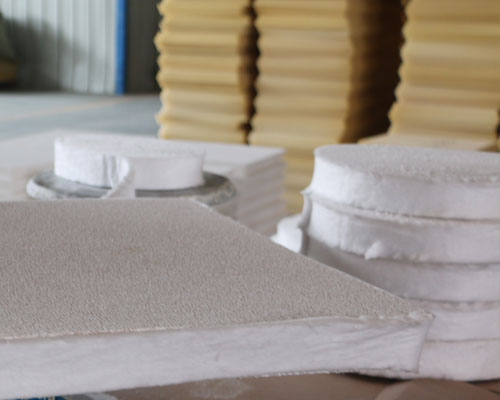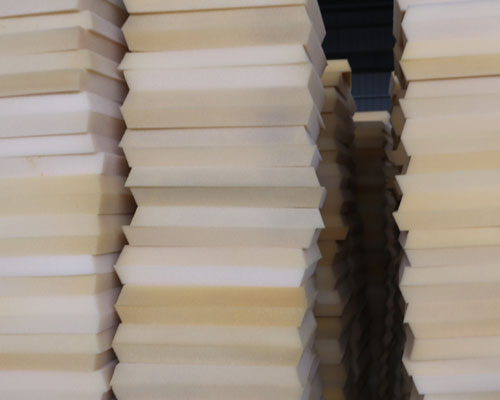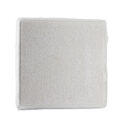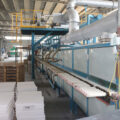As the polyurethane sponge is used as the carrier for foam ceramic filter production, the porosity of the polyurethane sponge itself determines the porosity of the foam ceramic produced. To obtain a high product through-hole rate, it is necessary to choose the same high through-hole rate polyurethane sponge, and the sponge mesh is required to be uniform, with no blind holes, and clear wire distribution. Therefore, the porosity of the sponge and the quality of the mesh have a direct impact on the porosity and mesh quality of the foam ceramic filter.
The properties of polyurethane sponge also have a great influence on the strength of the product, mainly in the influence on the strength of the green body after drying and the influence of the green body strength when the sponge is volatilized during the sintering process.
The influence of the strength of the green body after drying on the final product is mainly manifested in the damage of the green body by the shotcreting operation. The higher the strength of the dried green body, the less damage to it during operation, and the higher the strength of the sintered product. On the contrary, the lower the product strength. The higher the strength and elasticity of the polyurethane sponge, the higher the strength of the body after sizing.
When the polyurethane sponge is sintered and volatilized, the higher the green body strength and the slower the sponge volatilization, the smaller the damage degree and the higher the strength of the product produced. Of course, the main factors that affect the strength of the product are the ceramic slurry material, formula and sintering system.

The density, melting point, strength, elasticity and other properties of the polyurethane sponge have a direct impact on the product quality of the foam ceramic filter production, including the following two points:
(1) Foam ceramics of different materials have different requirements for polyurethane sponge performance. Among them, zirconia foam ceramics have the highest requirements for polyurethane sponge carrier performance. It requires polyurethane sponge density to be greater than 0.045 g/cm3, through-hole ratio greater than 85%, and melting point. 180 ~ 200℃, good elasticity and tensile strength greater than 12 KPa. Silicon carbide foam ceramics have relatively low requirements for polyurethane sponge performance; alumina foam ceramics have the lowest performance requirements for polyurethane sponge.
(2) The elasticity, through porosity, and strength of polyurethane sponge have a greater impact on the final shrinkage, through porosity, and strength of the foam ceramic product. The through porosity is most affected by the sponge; the sponge has good elasticity, high through porosity, and high strength. , The smaller the shrinkage of the corresponding product, the higher the hole rate, and the higher the strength; on the contrary, the product shrinks more, the hole rate is low, and the strength is low.



